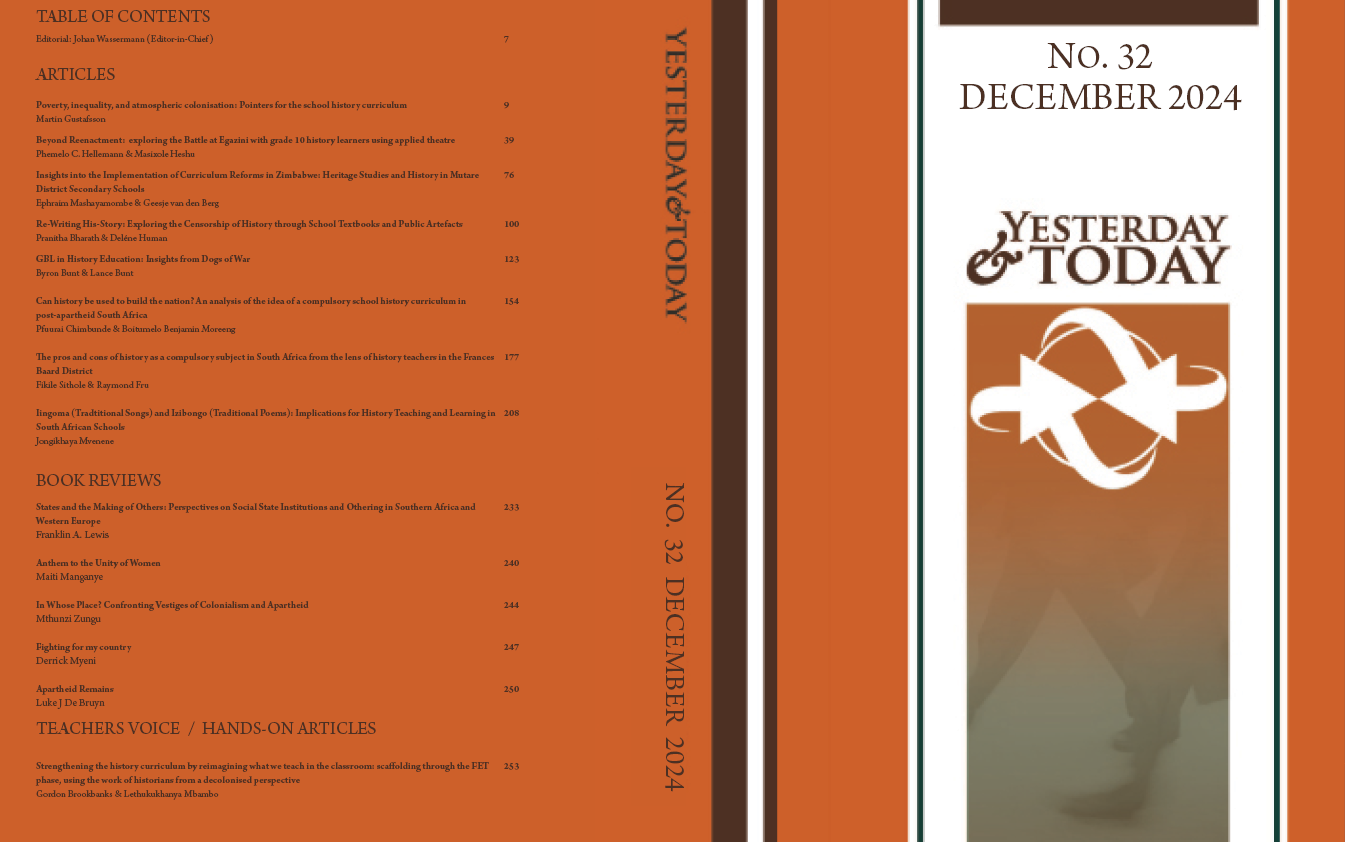Can history be used to build the nation? An analysis of the idea of a compulsory school history curriculum in post-apartheid South Africa
DOI:
https://doi.org/10.17159/2223-0386/2024/n32a7Abstract
Despite the critical role of education in peacebuilding, few studies in South Africa have interrogated the role of the school history curriculum on nation-building, leaving a critical gap in our understanding of the impact of a wrongly designed, developed, and implemented history curriculum. This conceptual paper, informed by the sociological foundations of education, responds to one question underpinning this study: What opportunities and threats are there for making school history compulsory in a country composed of diverse histories? Using the case of South Africa, the paper deploys document analysis to explore the risks and possibilities for making a school history curriculum compulsory. The findings replicate that making school history compulsory can be useful for nation-building. The study also argues that school history has two faces: rather than promoting nationalism and social cohesion it can also be a wedge that divides and fragments the society. Considering these findings, the study argues that the curriculum is a product of people and recommends that the school history curriculum in any country must be a selection from the history of all people. Significantly, this study extends and enriches the yet small number of studies
that debate making school history compulsory for nation-building. The paper contributes practical insights into how the school curriculum can be designed, developed, and implemented for the good of the whole nation.


